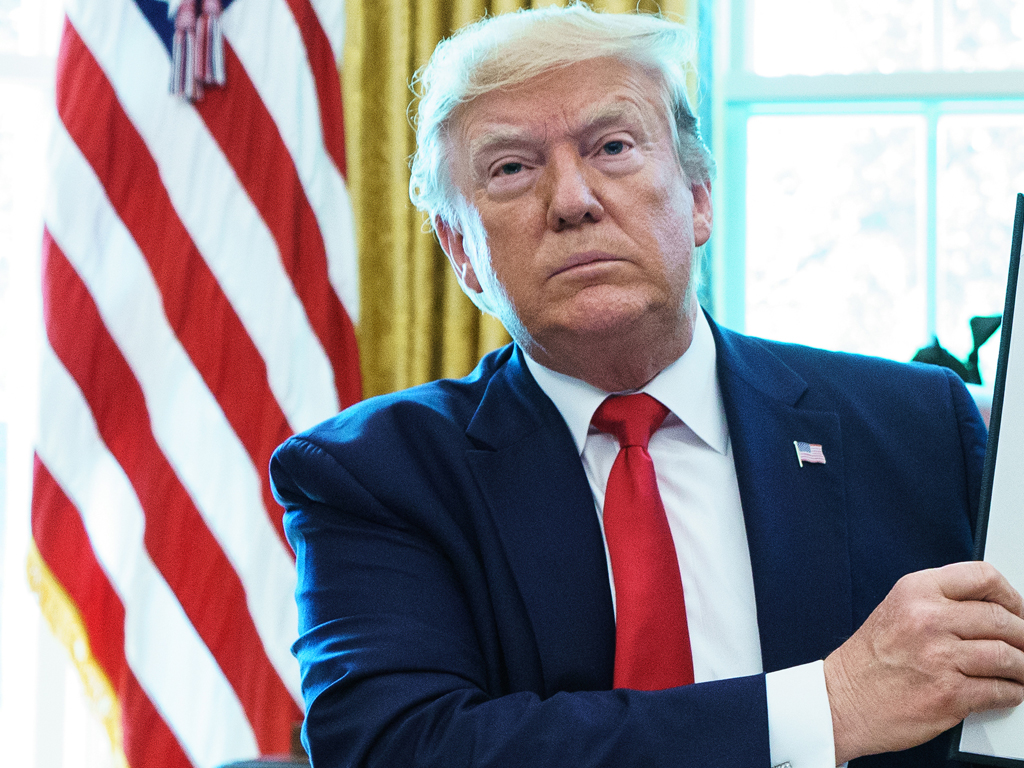 The Taliban's chief negotiator Mullah Baradar Akhund and US President Donald Trump held a 35-minute telephone call on Tuesday, a Taliban spokesman said, in what may be the first direct discussion between a US leader and a senior Taliban official. Trump confirmed the call, saying he had a "very good talk" with Baradar.
The Taliban's chief negotiator Mullah Baradar Akhund and US President Donald Trump held a 35-minute telephone call on Tuesday, a Taliban spokesman said, in what may be the first direct discussion between a US leader and a senior Taliban official. Trump confirmed the call, saying he had a "very good talk" with Baradar.
The call came three days after the United States and the Taliban signed an agreement in Doha on a US troop withdrawal from Afghanistan. "The President of the United States Trump @realDonaldTrump held a phone conversation with the Political Deputy of the Islamic Emirate, the respected Mullah Baradar Akhund. Details later," Taliban spokesman Zabihullah Mujahid said on Twitter.
In a later emailed statement, Mujahid said that Trump told Baradar that Secretary of State Mike Pompeo would soon speak to Afghan President Ashraf Ghani "so that the barriers against the inter-Afghan talks get removed."-Reuters
AFP adds: The Taliban carried out dozens of attacks on Afghan army bases, officials said Tuesday, hours after ending a partial truce and throwing into doubt peace talks between Kabul and the insurgents. The intra-Afghan negotiations are due to begin March 10 according to a US-Taliban deal signed in Doha on Saturday, but a dispute over a prisoner swap has raised questions about whether they will go ahead.
The agreement includes a commitment for the Taliban to release up to 1,000 prisoners and for the Afghan government to free around 5,000 insurgent captives - something the militants have cited as a prerequisite for talks but which President Ashraf Ghani has refused to do before negotiations start.
The row has highlighted the tough road ahead, with the Taliban's decision to end a partial truce Monday complicating matters further. In the last 24 hours the Taliban conducted 33 attacks in 16 of Afghanistan's 34 provinces, interior ministry spokesman Nasrat Rahimi said.
"As a result, six civilians were killed and 14 wounded. Eight enemy were also killed, 15 wounded," he said on Twitter. Two soldiers were killed in one of the attacks in southern Kandahar province, a government statement said. An attack in Logar province near Kabul killed five security forces, the provincial governor's spokesman Didar Lawang told AFP.
The halt to the limited truce, which began on February 22, ends what was a welcome reprieve for ordinary Afghans who have born the brunt of the deadly violence.
But experts said the move was unsurprising as both sides seek to exploit whatever leverage they hold to force the other's hand. "Of course violence will go up, was bound to happen. no surprise Ghani balking on prisoner release: 1 of his few levers," Vanda Felbab-Brown, a senior fellow at the Brookings Institution, tweeted. Kabul-based analyst Ahmad Saeedi told AFP the uptick in attacks reflected the insurgents' belief that "they have to keep the battlefield hot to be able to win on the negotiating table, as they did with the Americans."
'So far, so good'
Ghani's government last week sent a delegation to Qatar to open "initial contacts" with the insurgents but Taliban spokesman Suhail Shaheen on Tuesday said the militants would not meet Kabul's representatives except to discuss the release of their captives. Apparent differences between the Doha agreement and a joint US-Afghan declaration released in Afghanistan underline the obstacles facing negotiators.




























Comments
Comments are closed.